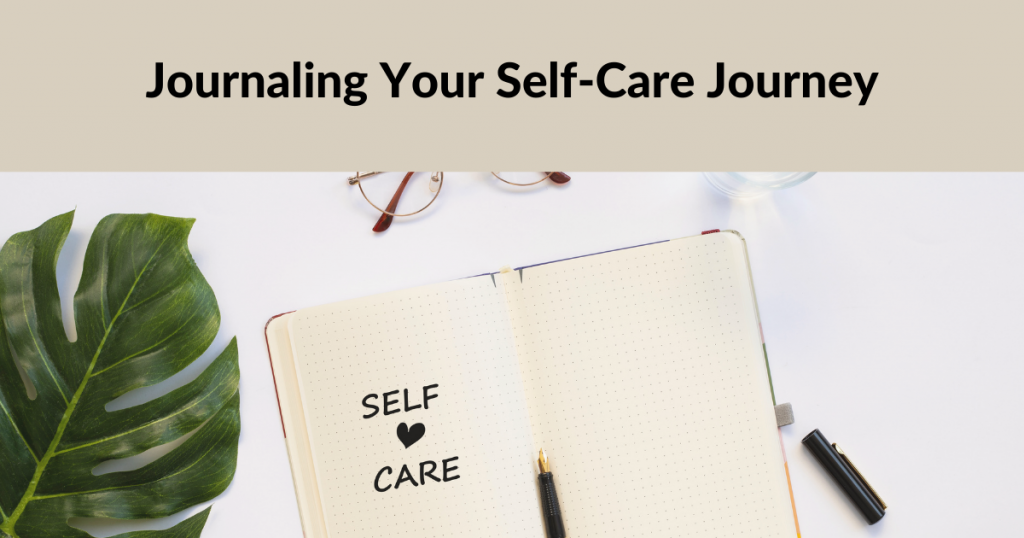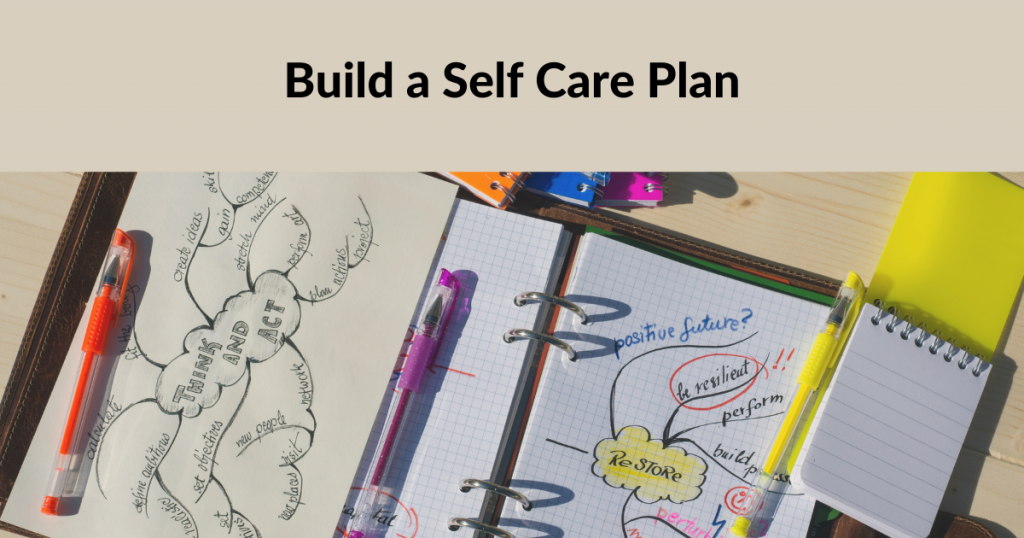 Five Ways to Find Motivation for Self-Care
Five Ways to Find Motivation for Self-Care
A common barrier to self-care is finding the motivation to do it. While it sounds simple, changing your lifestyle or adding things to your routine takes time. As a result, you won’t always want to do it, and that is okay. However, you encourage action taking to prevent yourself from avoiding it altogether.
The following are five ways to help find motivation for self-care:
Make It Fun and Rewarding
If it is something that you feel like you “have” to do, you are unlikely to feel motivated to do it. Be sure the self-care activities you pick are right for you, fun, and rewarding.
Share It with Others or Find an Accountability Partner
Find others with similar interests, or ask your friends and family to join in on a self-care journey with you. Then, become each other’s accountability partner to avoid making excuses or neglecting your plan altogether. Accountability partners can help you overcome the idea of doing something for yourself by including others when really it is for you—a useful tip for those who tend to put the needs of others before their own.
Outline and Crush Your Resistance
What is holding you back? Why do you need motivation in the first place? This means something in your plan is often wrong and doesn’t align with your overall way of life. For example, you want to add more physical activity, but you expect to go to the gym. However, you don’t feel comfortable in that environment. Thus, leading you to avoid exercise altogether. Instead, be honest and find the setting you know you can get active in.
Make it Fit Your Schedule
Don’t try to do or be something you are not. If you struggle daily to wake up early, leading to making more mistakes throughout your day, then this is not the self-care habit for you. There is never going to be a one-fits-all self-care plan. Just because you can’t be a morning person does not mean you can’t be healthy or develop a great and functional self-care plan.
Get Crafty
Turn your self-care routine into a craft project that gets you fully involved. Create charts that track your results to instantly see how well you are doing or vision boards to inspire you to crush your goals.
End the in, and the most important tip is just to do it anyway. You won’t always feel perfect, but once you get started, you may start feeling better. You are important and should make yourself a priority with self-care. Use these tips to find the motivation to kick your self-care plan into action and live a longer and healthier life.
 How to Add Self-Care to Your Daily Routine
How to Add Self-Care to Your Daily Routine
One secret to sticking to a successful self-care plan is to weave it into your daily routine. While taking a few days here and there is also a wonderful way to practice self-care, you are more likely to be successful and experience more benefits by practicing it daily. It is easier to get started if you add them slowly and do not expect perfection from day one. Proper self-care is a lifestyle, and it is about taking care of yourself. If you don’t do it daily, you miss important resources and information to live the life you desire.
The following are five tips to adding daily self-care to your routine for optimal health and happiness:
Start With a Personal To-Do List
Always start your day off with a small action plan. This way, you are more likely to get up and tackle the things that need to get done with clarity and positivity. To-do lists should be specific, clear, and obtainable. Be sure they are scannable and not overcrowded with too much detail. Be reasonable and realistic to your abilities and current feelings, and don’t expect to get it all done in one day.
Practice Positivity and Mindfulness
Work on feeling and presenting a more positive mood. This is about seeing the good before you assume the worse in order to promote mental clarity and less stress. In addition, focusing on what you don’t have and it’s bad side makes you more likely to make mistakes out of frustration or other negative feelings.
Track Your Hydration and Nutrition
Drink fresh, filtered water with a squeeze of lemon juice as soon as you wake up and use food as fuel to power through your day. Use cell phone applications or other techniques to keep track of your intake to ensure you have what you need throughout your day. Don’t expect yourself to remember. Just make it easy.
Make Movement a Priority
Physical activity, with the right movements for you, is vital to a long and prosperous life. Those who live more sedentary statically live shorter lives—incorporate movement in any activity you need to do.
Add in Your Favorite Hobbies
Be available for the things you love the most. Life is not just about working or paying bills. It’s about finding those things or people that make you feel whole, fulfilling, accomplished and happy. The more you add items into your life that you love, the more natural self-care will become.
This list is a great resource to get you started on implementing daily self-care. Remember, don’t expect perfection or to add all of these to your routine on day one. Instead, start with the one that makes the most sense to who you are as an individual. Self-care is not about pretending to be someone you are not. It is enhancing your current self and abilities to be a healthier and happier you.
 Eight Self-Care Discussion Questions to Improve Your Life
Eight Self-Care Discussion Questions to Improve Your Life
Journaling is a great self-care practice to follow to help you practice mindfulness and self-awareness. Answering discussion questions through journaling allows you to take a moment to separate yourself from everything to be sure what you are doing will enable you to achieve your dreams fully and maintain your needs. It allows you to unwind, destress and look at things more objectively to improve and lead a better life.
Here are eight self-care questions to answer and evaluate to adjust your self-care plan and improve your life:
#1: “Do I Truly Feel Happy? Why or Why Not?”
Be honest and open and realize that only you know the truthful answer. The more honest you are about your feelings, the easier to find ways to improve them.
#2: “Do I Live Each Day More Positively or Negatively? Can I Do Better to Adjust My Daily Attitude?”
What factors contributed to your feelings today? What strategies can you develop to do better? Remember, don’t use this time to be harsh.
#3: “What Expectations Do I Set for Myself Daily?”
Are these expectations realistic, and where did they come from? Are they essential to achieving what you need? If not, what can you do to overcome them? Many expectations thrown in life are made out of reality and don’t need to be a part of your life to be successful.
#4: “Are There Changes I Want to Make and If So, Why?”
What are the things you can do to make these changes? Do these changes really allow you to accomplish what you want? Again, make sure you are being realistic and are not making changes due to avoidance or trying to be someone you are not. You don’t have to achieve something just because the world is telling you to.
#5: “What Areas or Things in My Life Bring Me Those Most Joy?” “How Can I Do More of It?”
One way to build a happy life is through discovering new ways to do more of what makes you feel good and provides a sense of purpose. Can you change your career or monetize your passion?
#6: “What Self-Care Areas Do I Need to Improve and Why?” “What Things Can I Do in Each Category to Improve?”
Are you really doing what you need to take care of all the categories in your life? What elements are you missing that are making you avoid it? How, when, and what can you do to find the balance?
#7: “What Is My Idea of Happiness and How Does Self-Care Help?”
Happiness is a variable. Your idea of happiness will be different than your neighbors or even your friends and loved ones. That is what makes life so unique and different. Be sure that each day you are intentionally going after your idea of happiness.
#8: “What Feelings or Apprehensions Am I Feeling the Most Right Now? “How Can I Use Self-Care to Ease These Feelings?”
What is holding you back or keeping you from doing the things you need to be happy? Can you find ways to avoid it or face it head-on to improve?
Take a moment to answer each of these questions every week or once a month. Choose a time to answer these questions that works best for you. Ensure that you are willing to be open and honest. The more sincere you are, the more helpful and useful journaling can be to your self-care plan. Take your answers and use them to adjust your self-care plan to improve each of the self-care categories in your life.
 Four Steps to Building a Personal Self-Care Plan
Four Steps to Building a Personal Self-Care Plan
Implementing and following self-care sounds easier said than done. It is easy to give into temptations or be too involved in your work to pay attention to all the key areas of your life. Instead of expecting yourself to be healthy and add self-care – you need to develop a comprehensive plan. Then, even when you have bad days, you can pick yourself up and keep moving forward to your best self and life.
Here are the four steps to building a personal self-care plan:
Step One: Evaluate All Areas of Your Life
The first step is figuring out where you are now regarding the level of self-care you provide yourself directly while also determining what triggers your anxiety or stress to start eliminating or healthily dealing with these stressors.
For example, if you feel anxious trying to get the kids and yourself ready for the day in the morning, how can you make this reality easier? Perhaps getting clothing ready the night before or working from home or home schooling is the answer.
Step Two: Develop Short-Term and Long-Term Goals
Starting with the short-term goal of just making your mornings less stressful, write out your goal for that. For example, your goal might be to eliminate rushing and hurrying in the morning by setting up your morning the night before. A long-term goal might be to stop having to get up so early in the morning by radically changing your life. As long as you write SMART goals that are specific, measurable, attainable, relevant, and time-bound, no goal is too hard to help you make your life better.
Step Three: Act (Do Stuff) and Monitor Your Results
Once you have designed the steps to take to reach your goals, you’ll also want to schedule them and monitor the results of your actions. Create a way to track and monitor your results, get an accountability partner, make graphs or charts, or keep track through smartphone applications.
Step Four: Practice, Update and Take Risks
When you first seek to change how you live your life totally, it’s not going to come easy and be an overnight cure to whatever your problems are. Instead, you’ll need to set short-term and long-term goals so you can experience success. Keep practicing goal setting, action-taking, and monitoring the results. Don’t be afraid to take calculated risks.
Use these steps as a blueprint to develop your comprehensive self-care plan. It is important to note that your strategy should be personal to you and only you. Don’t add something to your routine you know will make you uncomfortable for the long run or because you believe that is what others want from you. The key is finding your happiness and health and then taking the right steps each day.
Journaling Your Way to Self-Love & Better Self-care






Leave a Reply